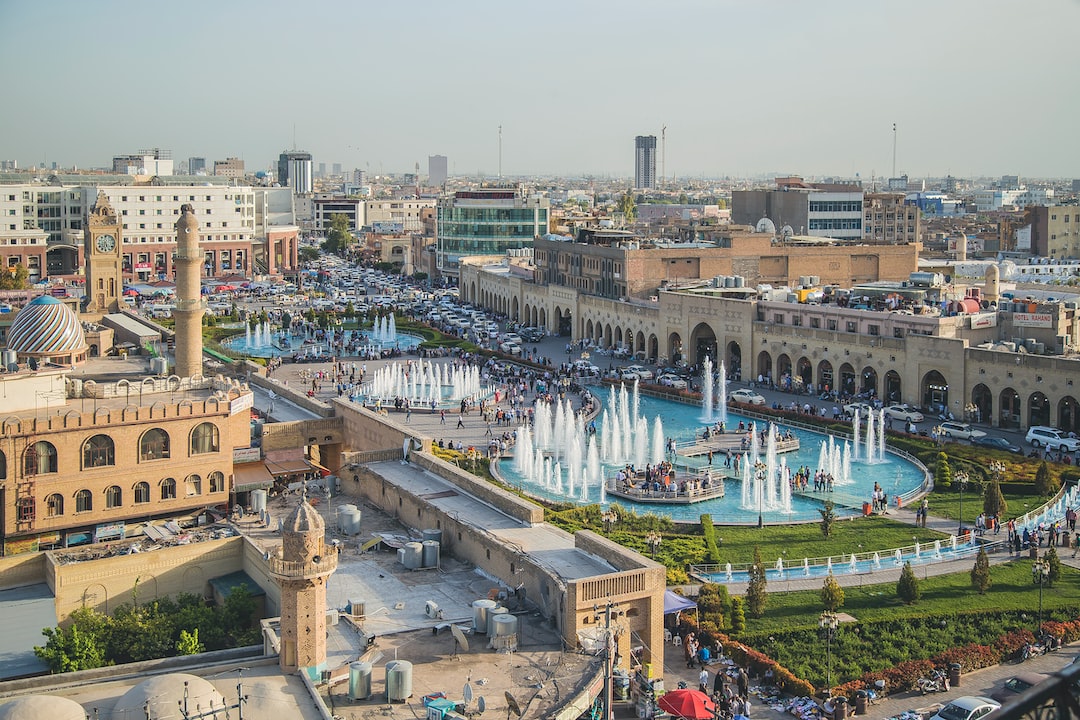Planning a wedding can be overwhelming, but learning about the traditions of other cultures is an exciting way to make your special day even more meaningful. Take for example Iraqi wedding traditions: from pre-wedding customs to post-wedding celebrations and everything in between, there are so many ways to incorporate these unique cultural practices into your big day. In this blog post we’ll explore some of the most common iraqi wedding traditions and how you can use them as inspiration when planning your own nuptials. So grab a cup of tea (or coffee) and join us on this journey through Iraq’s rich history – let’s dive right into all things iraqi weddings.
Iraqi Wedding Traditions
Pre-Wedding Traditions
In Iraq, pre-wedding traditions are an important part of the marriage process. Engagement ceremonies are a way for families to come together and discuss marriage terms while exchanging gifts. During this ceremony, both families meet in person or virtually to celebrate the couple’s commitment to each other. Bride price negotiation is another key tradition that involves the groom’s family paying a sum of money or items as compensation for the bride’s hand in marriage. This can be done through bartering or cash payments depending on local customs and laws.
Wedding invitations are also sent out by either family to inform friends and relatives about the upcoming nuptials. These invitations typically include details such as date, time, location, dress code, and any special instructions guests should follow when attending the wedding ceremony. In some cases, couples may even choose to send out save-the-date cards so their guests have plenty of time to plan ahead for their attendance at the event.
Finally, many Iraqi weddings involve traditional rituals like henna painting on hands and feet before or during the wedding day itself. Henna is believed to bring good luck and protection from evil spirits, making it an essential part of most Iraqi weddings today.
Wedding Day Traditions
On the day of the wedding, both families come together for a joyous celebration. Attire and decorations are key elements to make this special occasion memorable. The bride usually wears a traditional white gown with intricate embroidery or beading while the groom dons a suit or tuxedo. Decorations may include colorful banners, flowers, and lights that add an extra touch of festivity to the atmosphere.
Procession to the Groom’s House is another important tradition on wedding days in many cultures around the world. In some countries, it is customary for family members from both sides of the couple to accompany them as they walk from one house to another in order for them to receive blessings from their elders before officially tying the knot. This procession can also be accompanied by music and dancing which adds even more excitement.
The final part of any wedding ceremony is when vows are exchanged between two people who have decided to spend their lives together in love and commitment. After exchanging rings, couples often share meaningful words that express how much they mean to each other followed by a kiss as an official sign of unity between husband and wife. It is truly an emotional moment that marks not only a new chapter in life but also symbolizes eternal love between two individuals.
Post-Wedding Traditions
After exchanging vows, newlyweds often enjoy a reception celebration with their family and friends. Music, dancing, food, and drinks are usually served to guests as they congratulate the couple on their union. This is an opportunity for the bride and groom to thank everyone who has supported them throughout this special occasion.
Honeymoon traditions involve taking time off from work for the newlyweds to spend quality time together before returning home. This can be done in many ways such as going on a romantic getaway or simply spending some quiet days at home away from all of the wedding preparations. Whatever way they choose to celebrate their honeymoon should reflect what works best for them as a couple while allowing them to create lasting memories together.
Gift giving customs also play an important role in post-wedding traditions around the world. Gifts such as jewelry or money are presented by both families as a sign of appreciation for their support during this special occasion. In some cultures, it is customary for the bride’s family to give gifts that symbolize fertility and prosperity while in others, it is expected that both families exchange gifts with each other out of respect and gratitude towards one another’s contribution towards making this day possible.
Other Iraqi Wedding Customs
Iraqi weddings are a beautiful and unique celebration of love, culture, and tradition. Dowry system is an important part of the wedding process in Iraq. This involves providing items such as furniture or household appliances from the groom’s family to that of his bride’s as part of their marriage agreement. The dowry can also include money or jewelry depending on the region or ethnicity.
Traditional music and dancing at weddings is common practice in Iraq with different genres being played throughout the night depending on region or ethnicity. Popular traditional songs often include lyrics about love, happiness, and celebrating life together with your partner. Dancers may form circles around the couple while they dance along to lively beats that fill up the room with joyous energy.
Food and drinks served at weddings typically include dishes like kibbeh (meatballs) and baklava (pastry), along with hot tea or coffee for refreshment purposes. These meals are usually prepared by family members who take pride in creating delicious feasts for their loved ones to enjoy during this special occasion.
Overall, Iraqi wedding customs are filled with meaningful traditions that have been passed down through generations over time, making them truly one-of-a-kind experiences worth cherishing for a lifetime.
Conclusion
Iraqi wedding traditions are a unique and beautiful way to celebrate the union of two people. From pre-wedding rituals, to wedding day customs, and post-wedding festivities, these ancient traditions are still practiced today by many families in Iraq. Whether you’re looking for an interesting way to honor your own culture or just curious about what goes on at an Iraqi wedding, learning more about these customs can be a great way to bring something special into your big day. No matter how you choose to incorporate them into your celebration, it’s sure to make your special day even more memorable.




